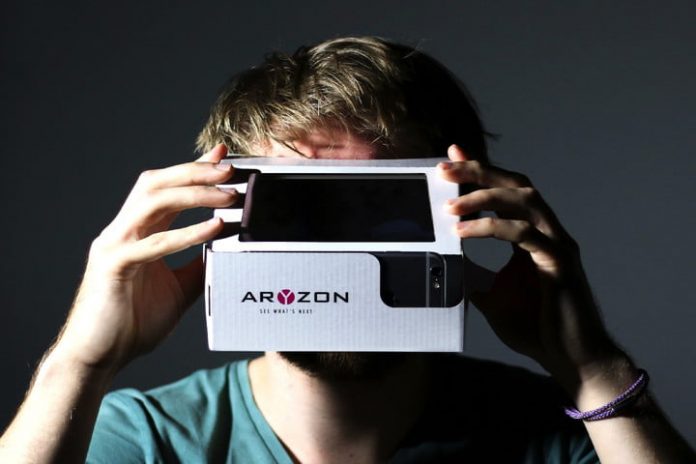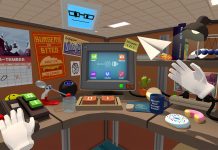With all of the recent buzz around VR and the exciting products being rolled out, augmented reality (AR) has really been pushed out of the spotlight. A small startup company from the Netherlands called Aryzon is looking to bring AR front and center, showing the world for the first time in an affordable manner the up and coming experience of augmented reality.
Similar to Google Cardboard, Aryzon is developing a DIY cardboard foldout that utilizes mirrors and stereoscopic lenses in conjunction with the user’s smartphone. With the smartphone app, virtual objects will be projected onto the viewer’s environment which they can then interact with.
Until the introduction of Aryzons’ product, the only other technology closest to creating an AR experience was the Microsoft HoloLens which carries the hefty price tag of $3,000 and is only available to businesses. The team’s real focus is to provide an affordable option that anyone can use and introduce the world to the possibilities AR creates.
To help make their idea a reality, Aryzon opened a Kickstarter campaign to fund the project. Within the first 24 hours, their dreams were realized and they exceeded their goal of raising $28,176. With 27 days to go as of writing this article, they have raised a total of $78,491 with over 1,800 backers.
Consumers looking to claim their own Aryzon headset and dive into the immersive AR world can do so for just $32 – quite a difference from the $3,000 alternative. Not only does it come with the stylish DIY cardboard folding kit, but Aryzon has also included their own app to use which will help introduce consumers to AR. The app will give users a few projected objects that can be scaled, rotated and interacted with.
Going forward, the small startup has plans to open up software development so developers can begin creating content and adapting applications to their platform. As of right now, the headset will work with current 2D augmented reality apps on the market, such as IKEA Catalog and Nike ID. With the IKEA app, users will be able to virtually project selected furniture in their own home. The Nike app will give users the ability to customize and design their own shoes literally before their very eyes.
No doubt a lot of people will be looking to use AR from a strictly recreational standpoint, but the implications far exceed recreational use and have multiple practical applications. Particularly in the medical field, doctors and surgeons could potentially use this technology to view medical problems from a previously impossible point of view. Architects could use this technology to better plan and design buildings, and realtors could use it to show buyers what a house could look like fully furnished and decorated.
It’s an exciting time to watch the development of augmented reality with Aryzon leading the way. They plan to begin shipping product to the Kickstarter backers in September of this year, which for the majority of people will be their first experience with AR. Having succeeded in making AR accessible to anyone, the future of this small startup looks bright and promising.









